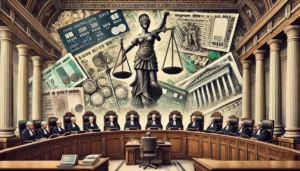Facts:
The case arises from a series of writ petitions filed under Article 32 of the Constitution of India. The petitions challenge the demolition of residential and commercial structures carried out by state authorities without following due legal process. The demolitions were alleged to be punitive actions taken against individuals accused of criminal offenses. Petitioners sought guidelines to prevent such demolitions and ensure that state actions adhere to constitutional principles of natural justice, separation of powers, and public accountability.
Contentions of the Appellant:
The appellants, comprising state authorities, justified the demolitions on grounds of municipal law violations, public encroachment, or unauthorized constructions. They argued that due process had been followed in most cases, citing affidavits and municipal laws permitting demolitions under specified circumstances. They emphasized that certain demolitions were necessitated by public safety and urban planning requirements.
Contentions of the Respondent:
The respondents contended that the demolitions were punitive, discriminatory, and carried out with malice, targeting specific individuals for alleged criminal activities. They argued that the demolitions violated principles of natural justice as no prior notice or opportunity for hearing was provided. The respondents also alleged abuse of power, emphasizing the need for judicial oversight and adherence to constitutional protections.
Issues of the Judgment:
- Whether the demolition of properties of accused persons, without following due process, is constitutionally valid.
- Whether the executive’s actions in demolishing structures without judicial adjudication breach the principles of separation of powers.
- Whether state authorities can bypass procedural safeguards and resort to demolition as a punitive measure.
- Whether punitive demolitions violate fundamental rights under Articles 14, 19, and 21 of the Constitution.
Observations/Findings by the Supreme Court:
- The Court emphasized the rule of law as a cornerstone of democratic governance, requiring state actions to conform to established legal principles and due process.
- It reiterated the doctrine of separation of powers, highlighting that adjudicatory functions cannot be usurped by the executive.
- The Court underscored the importance of public trust and accountability, stating that state actions must be free from arbitrariness and discrimination.
- It found the demolitions to be violative of constitutional guarantees, particularly when carried out without notice, hearing, or adherence to statutory provisions.
- The Court clarified that punitive demolitions amount to misuse of power and breach principles of natural justice, fairness, and equality.
Principle of the Case:
State actions, including demolition of property, must adhere to constitutional safeguards, ensuring due process, non-arbitrariness, and adherence to statutory procedures. Punitive demolitions targeting specific individuals based on accusations without judicial oversight contravene the principles of natural justice and separation of powers.
Final Order:
The Court directed that no demolition shall be carried out without prior notice, a fair hearing, and compliance with statutory requirements. It laid down guidelines to ensure transparency, accountability, and adherence to constitutional principles. Erring officers were warned of personal liability for violations.
Impact on Public Law and Order:
This judgment reinforces accountability in governance by curbing arbitrary executive actions. It ensures that state authorities adhere to constitutional principles, protecting citizens from misuse of power. By mandating due process and judicial oversight, it fosters trust in the legal system and prevents misuse of state machinery for punitive measures, contributing to a stable and just society.
Case Citation:
Supreme Court of India, In Re: Directions in the matter of demolition of structures, Writ Petition (Civil) No. 295 of 2022, Judgment Date: November 13, 2024.








